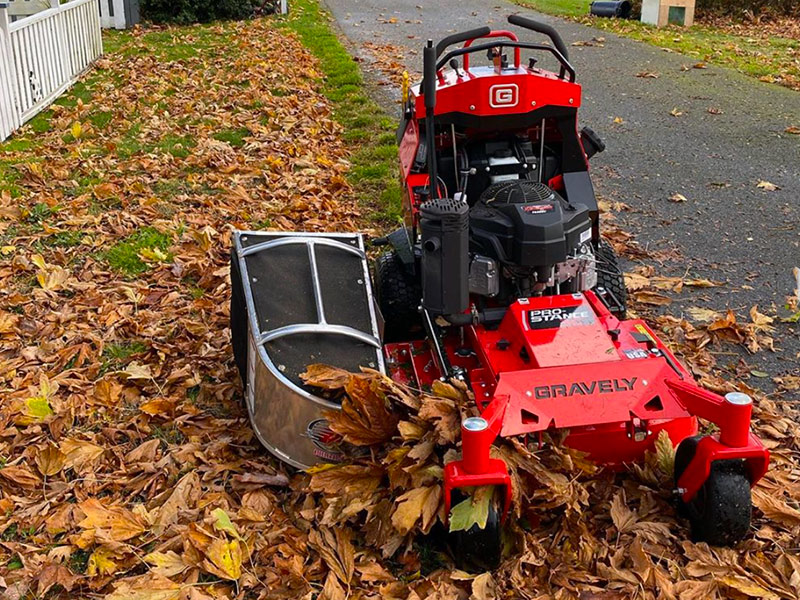Over the past 30 years, we’ve seen our fair share of poorly maintained equipment, especially when it comes to winterizing. Before you store your equipment till next spring, take time to do the following 5 things to ensure your equipment is in solid working order when you start it up next year.
- Ditch the Ethanol Gas Before You Store
Simply put, ethanol gas starts to spoil when it’s stored longer than 6-8 weeks. The alcohol in the gas attracts water which can lead to rust and corrosion and it can break down residues inside of the tank that can clog the filters and the carburetor itself. It’s best to burn off the remaining ethanol gas in your tank and replace it with 90 octane before you store your equipment.
- Add a Fuel Stabilizer
If you can’t burn off ethanol based gasoline prior to storage, then it’s critical to add a fuel stabilizer to your tank. Fuel stabilizer is good to use even if your tank is full of ethanol-free 90 octane fuel. A stabilizer will bond with gasoline and prevent evaporation, if your gas begins to evaporate it will leave sticky resin that will plug up your fuel system, potentially ruining your carburetor..
- Inspect and Replace Air Filters
Clean or replace your air filter before winterizing your power equipment; clean air is a part of the combustion process and dirt and debris can potentially damage your engine and lead to poor running characteristics.
To clean your filter, simply tap out as much debris as you can and then hold it up to light and make sure you can see through it., never use compressed air to blow out debris from paper filters as it can damage the filter and allow dirt to pass through. If you have a foam filter, these can be cleaned with dish soap and water. But, if you find that your filters are extremely dirty or damaged, stop by and grab a new filter from Carl’s Mower and Saw.
- Change Out Spark Plugs
A new spark plug will help make it easier to fire up your engine next spring.
- Replace The Oil
Oil contains gasoline, soot, moisture and particles that can corrode engine components. After you replace it with clean oil, let it run a few minutes to coat the engine with clean oil.
And while you’re in winterizing mode…
5 Tips to Winterize Your Home
- Insulate Outdoor Faucets
Spigot covers help trap the heat that radiates from interior pipes. It’s not 100% fail proof but it’s a good way to provide thermal protection to your exterior faucets.
- Got Dahlia’s?
Dahlia tubers aren’t winter hardy, but they will bloom year after year if you protect them. Wait till the foliage turns yellow before digging them up, we want them to store as much energy as possible for the following year. Once yellow, cut the foliage and dig up the tuber. Brush off the soil and hang them upside down to dry for a few days. When your tubers are thoroughly dry pack them in a dry container and store them in a temperate area that’s 40-45 degrees. Check on them throughout the winter to make sure moisture doesn’t get to them.
- Mulch Your Leaves then Cover Your Gardens
Before you winterize your equipment, mulch your leaves! A good layer of mulched leaves will protect your plants and feed the soil over winter. Spread your mulch until you can’t see the soil and then add a little more for protection. Plants like garlic will love it!
- Cut Back Hazardous Limbs
Don’t take a chance, prevent potential damage by pruning back branches that could cause damage in a windstorm.
- Make Sure Your Generator is Ready
Get your generator out and start it to make sure it’s ready when you need it. Remember, always run your generator outside. Have you had your generator serviced this year? If not, give us a call.
Properly winterizing your home and power equipment protects your investment and prepares you for another spring. If you have questions or need help, the team at Carl’s Mower and Saw is just a phone call away.
Power Your Outdoors with Carl’s Mower & Saw, a leading source for service, equipment sales & rentals, and parts in Whatcom County. Have questions? Give us a call 360-384-0799, or email us at info@carlsmower.com.

